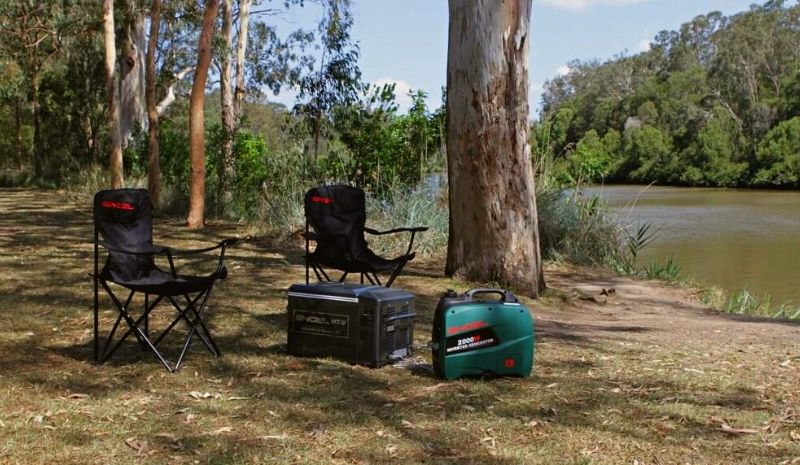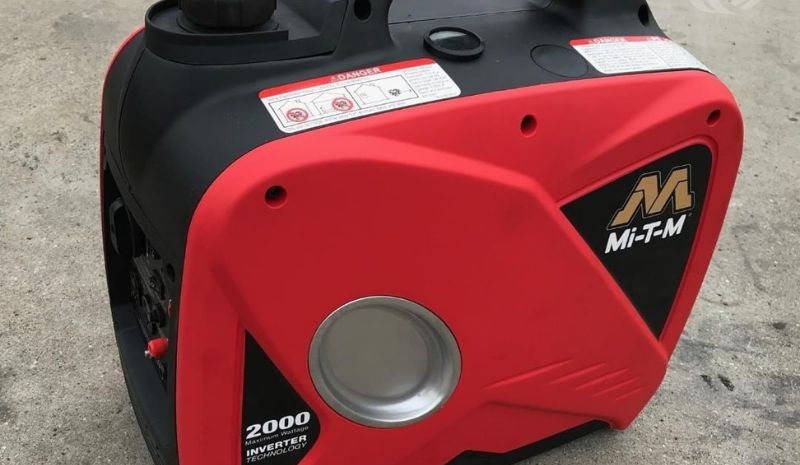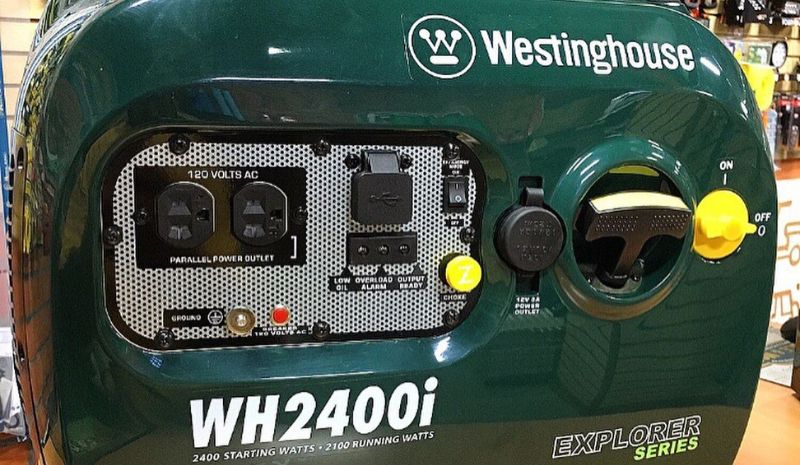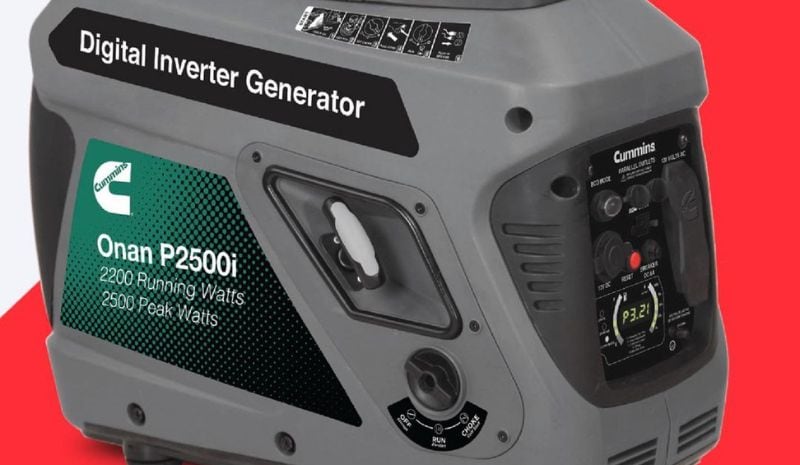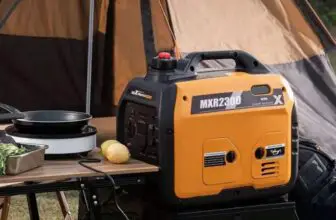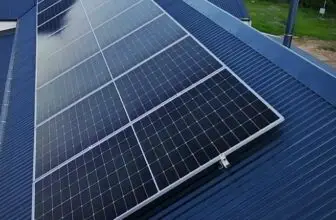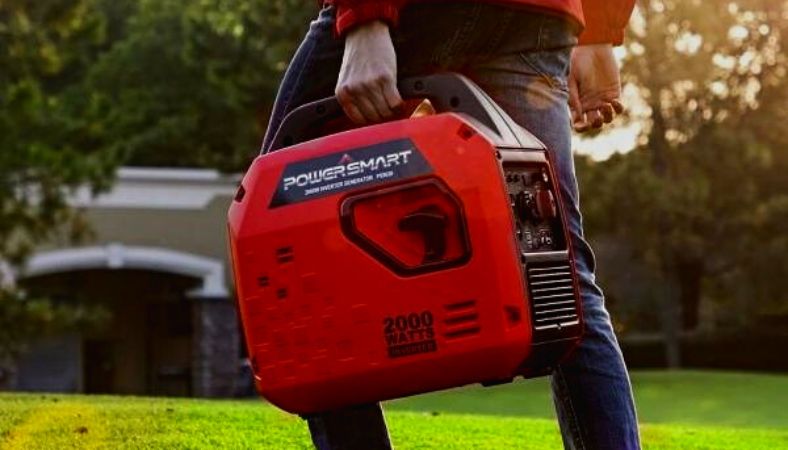
A generator is a machine that converts mechanical energy into electrical energy. Internal combustion engines are the most common type of generators used in homes and businesses. These engines use gasoline, diesel, or propane to turn a crankshaft, which rotates an alternator to produce electricity.
While a generator can be a lifesaver during a power outage, it is important to remember that running the wrong appliances on a generator can be dangerous.
Starting Watts VS Running Watts
Contents
Watts are a unit of measurement for power. Starting watts are the power required to start up a particular appliance while running watts are the power required to keep that appliance running.
Starting watts are usually much higher than running watts because it takes more power to get an appliance up and running than it does to keep it running. For example, a typical refrigerator might require 1,000 starting watts to get it started but only 100 running watts to keep it running.
The difference between starting and running watts is important to understand because it can help you determine how much power you need to have when using multiple appliances simultaneously. For example, if you have a fridge and a TV that require 1,000 watts, you would need 2,000 watts to start them both up. However, if you only had 1,000 watts of power available, you would only be able to start up one of the appliances.
It’s also important to understand the difference between starting and running watts because some appliances require more power to start up than others.
If you’re only running a few small appliances, you might be able to get away with a generator that only has enough power for running watts. But if you’re running a larger appliance, like a refrigerator, or starting up an electric motor, you’ll need the extra power of starting watts.
To be safe, it’s always a good idea to choose a generator with at least 50% more power than you think you’ll need. That way, you’ll be sure to have enough power for starting watts and unexpected surges.
2000-Watt Generator: What Will It Run?
Using a 2000-watt generator, you can power many things. When choosing a generator, you want to consider what you will be using it for.
A 2000-watt generator can run various appliances. Here are some examples of the wattage of home appliances:
- Coffee Maker: 700 watts,
- Toaster: 1000 watts,
- Microwave: 1200 watts
- Laptop: 60-80 watts
- Television: 120 watts
- Desktop computer: 200-400 watts
- Clothes dryer: 1800-5000 watts
- Refrigerator: 700-1200 watts
- Oven: 1200-2000 watts
- Dishwasher: 1200-2400 watts
- Washing machine: 500-1200 watts
- Air conditioner: 1000-1200 watts
- Hair dryer: 1000 watts
A 2000-watt portable generator can be a great investment. Not only will it save you money when you have a power outage, but it can also be used in many different ways.
How Many Appliances Can I Plug In a 2000-Watt Generator At The Same Time?
A 2000-watt generator can handle a few appliances at the same time. However, how many appliances you can plug in will depend on the wattage of each appliance. For example, if you have three appliances that each use 500 watts, you will use 1500 watts and 500 watts left over. However, if you have an appliance that uses 2000 watts, you will not be able to use any other appliances simultaneously. Here are some general guidelines for how many appliances you can run off of a 2000-watt generator:
- One small appliance, such as a coffee maker (1000 watts)
- One medium-sized appliance, such as a microwave (1200 watts)
- One large appliance, such as a refrigerator (700 watts)
- Lights and other small electronics (200 watts)
Keep in mind that these are just general guidelines and that the wattage of your appliances may vary. When in doubt, it is always best to err on the side of caution and not try to run too many appliances simultaneously.
Can I Use a 2000-Watt Generator for an RV?
RVs are a great way to explore the country and see different sights, but they can be expensive to keep up with.
A 2000-Watt generator is powerful enough to run most RV appliances, including the air conditioner, fridge, and microwave. It’s also relatively quiet, so you won’t have to worry about disturbing your neighbors.
The biggest benefit of a power generator of 2000 watts is that it’s much cheaper to operate than a larger one. You’ll save money on fuel, and you won’t have to worry about overloading your RV’s electrical system.
You should keep a few things in mind if you plan to use a powerhouse 2000-watt generator for your RV. First, make sure that your RV is properly ventilated. Generator exhaust can be dangerous, so it’s important to ensure that the area around your RV is well-ventilated.
Second, be sure to follow all of the manufacturer’s instructions for your generator. This will help you avoid any accidents or damage to your RV.
Finally, make sure you have a backup plan in an emergency. It’s always a good idea to have a backup generator or a source of backup power, just in case your primary generator fails.
Frequently Asked Question
What Can 2000-Watts Power?
A 2000-watt power source can power a wide variety of devices and appliances. A few examples include a desktop computer, a refrigerator, a television, a hair dryer, or a coffee maker. The amount of time it takes to power these devices will vary depending on their wattage.
What Should You Know Before Buying a Generator?
There are a few things you need to know before buying a generator. The most important thing is to ensure you get a generator that is the right size for your needs. You must consider what you will use the generator for and how much power you need. Other things to consider include the type of fuel the generator uses, the noise level, and the price.
What Happens if You Overload a Generator?
If you overload a generator, it will shut down. This is because the generator is designed to protect itself from damage. When the generator is overloaded, it will automatically switch off.
Conclusion
When choosing a generator, selecting one rated for the specific application is important. For example, a generator used for backup power should be able to handle the electrical load of the entire house. A generator used for camping should be able to handle the electrical load of the RV or camper.
The 2000-Watt Generator is a popular choice for many applications. This generator is rated for 2000 watts of power output. It is powered by a gas engine and has a run time of 8 hours at half load. The 2000-Watt Generator is a great choice for many applications, but it is important to select the right appliance for the specific application.

